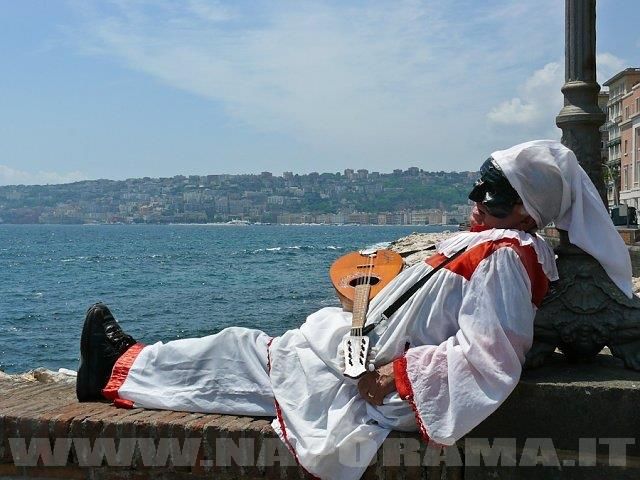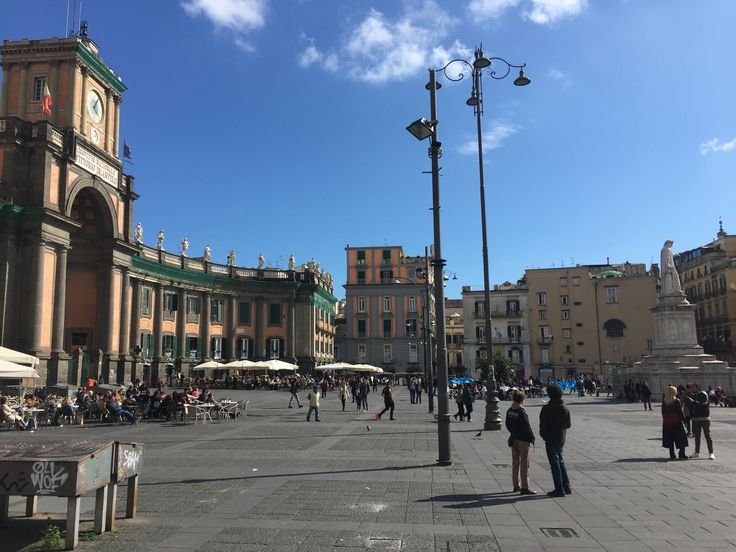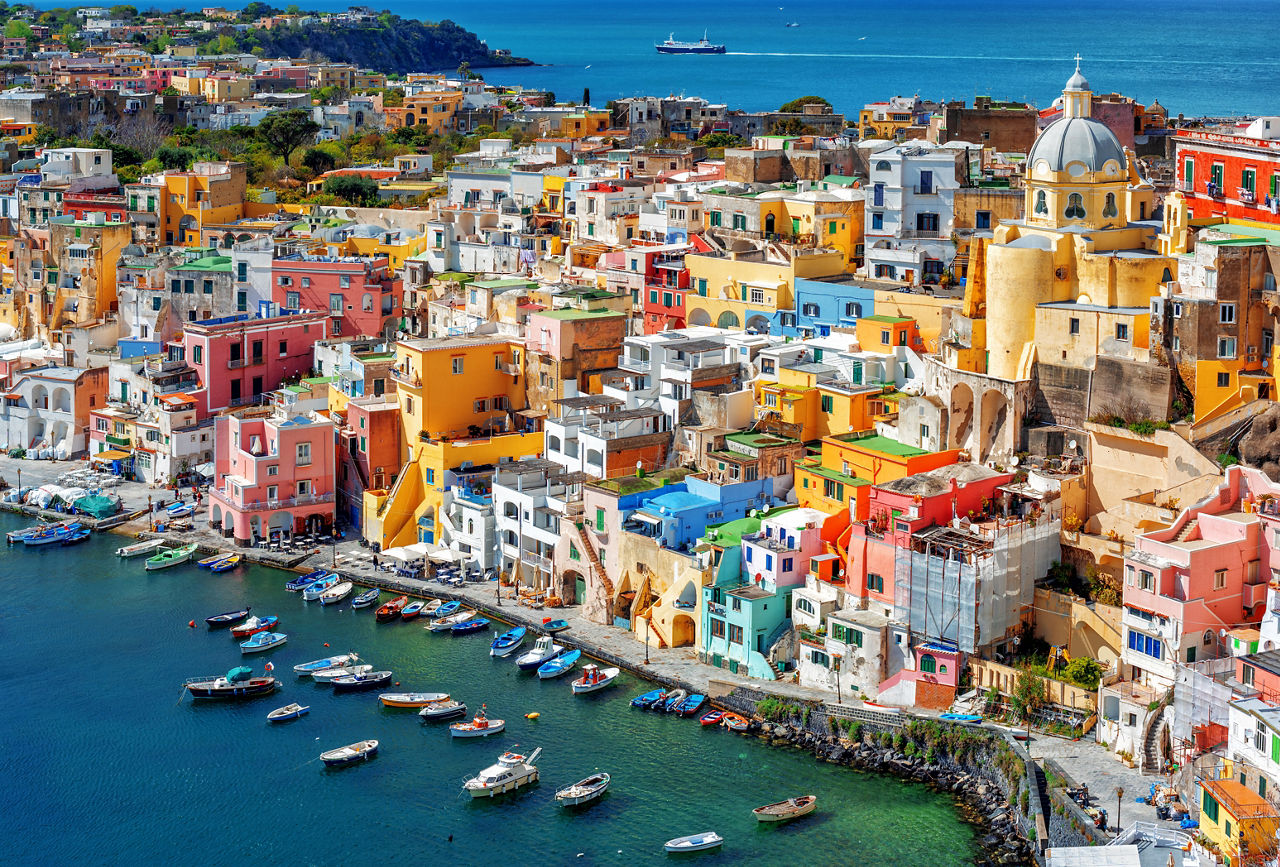
The island of Procida, is the smallest among the principal islands of the Naples archipelago, is a real slice of paradise, with its colors and unique atmosphere. Procida, a few nautical miles from the mainland, in particular from the municipality of “Monte di Procida”, can be reached in less than an hour by boat starting from the port of Naples or Pozzuoli.
The island is small in size, and lends itself perfectly to a day tour. In fact, it has a perimeter of approximately 16 km. Next to the main island of Procida, there is the nearby islet of Vivara (0.4 km²), and the two islands in the Gulf of Naples are part of the group of the Flegrean islands, together with Ischia and Nisida.
The peculiarity of the island of Procida is that historians do not agree in clarifying the origin of its name, which still remains a mystery. It is no coincidence that the island of Procida was named “Capital of Culture“ in 2022, which increased its fame at a national and global level.
Origins of the name “Procida”
The name of Procida is as fascinating as the history of the island is mysterious. In fact, if on the nearby Ischia we have rivers of literature, also thanks to the favors of the Bourbons, very fond of the Ischitani, the history of the “island of sailors” is jealously preserved by its descendants.
Precisely with Ischia, according to Pliny the Elder, the island perhaps shared its origins. In the Naturalis Historia the expert Roman naturalist hypothesized that the two islands were once connected. Then an earthquake separated it from the Isola Verde.
For this reason – he added – both islands were once identified with “Pithecusa”, which then became the first name of Ischia alone.
The origin of the name Procida: a beautiful mystery
The theories formulated over the centuries are numerous, even with very authoritative signatures. If we have a good serenity in thinking that the first colonists of Procida were the Greeks from Chalcis around the 8th century BC, the same ones who created numerous colonies throughout Magna Graecia, including Catania, Cuma and nearby Ischia.
The theory connected to the Aeneid
Dionysius of Halicarnassus imagined a hypothesis as fascinating as it is probably imaginative: referring to the Aeneid by Virgil, another protagonist of the history of Campania. Aeneas’s nurse, in fact, was called Procida. She died during the hero’s journey to Rome and was buried right on the beaches of the beautiful island, near Vivara. Although very poetic as a theory, it is most likely not so.
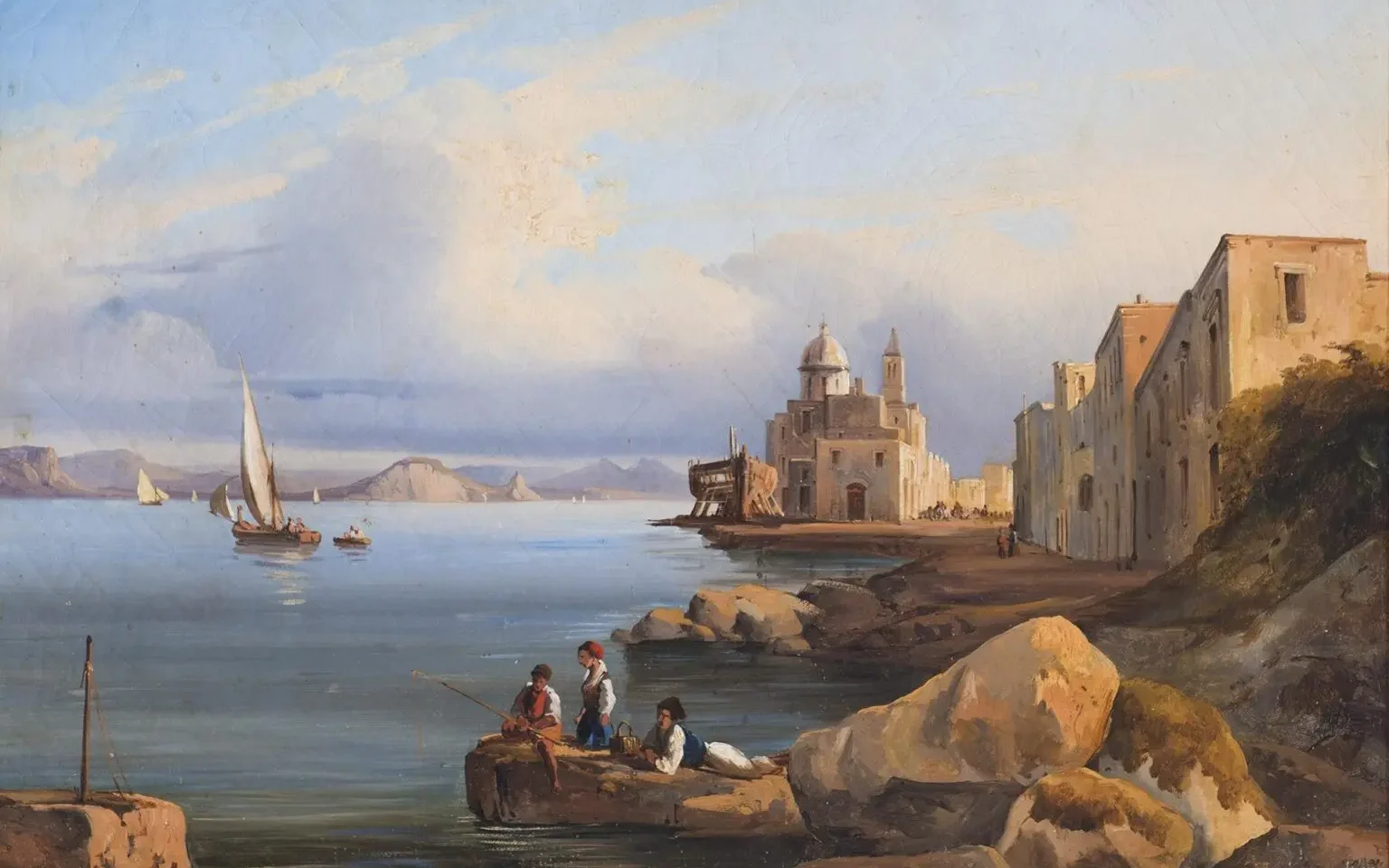
The more probable Greek origin
If we start from the immense cultural baggage that the Greeks have given us, the name Procida could come from a Greek verb, “prokeein“, which in Latin translates as “profundere“. After the violent earthquake that separated the two islands, therefore, the smaller of the two would have been called literally “put out”, to indicate its origin.
Cuma and a distortion
Abbot Marcello Scotti, a philosopher born on the island in the 18th century, suggests a very interesting reconstruction: the name would be a distortion of “pro-cyma“, or “Before Cuma”, where “Cuma” should not be understood as the city, but as the “peak“, that of Capo Miseno. The name in this case could derive from Aramaic or Hebrew, where in both cases “kym” means peak.
Or, in a second hypothesis, it could refer to a settlement of Cumaean colonists, who in ancient times were rulers of the whole of Campania.
Giants and Gods
Greek mythology provides us with a further suggestion: off the coast of Capo Miseno the Gigantomachy took place, a titanic battle between the giants and the gods of Olympus, who saw the defeat. And so, if Ischia was the boulder thrown on the shoulders of Typhon and Vesuvius crushed Alcyone, Mimas was the luckiest: he had to bear the burden of little Procida, a featherweight compared to his colleagues.
The importance of being called “Procida”
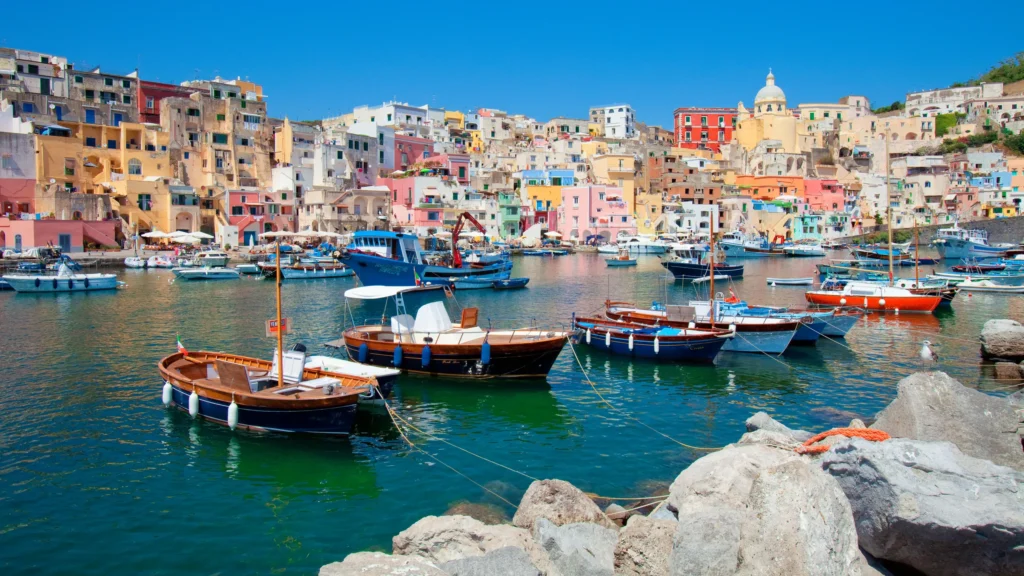
To understand the bond between the people of Procida and their island, it is interesting to note that all the reconstructions and almost all the ancient texts on the history of the island were written by locals, with a romantic dedication: “to my homeland“.
These very words, for example, are the beginning of the preface of the texts by Scotti and Parascandolo, two people separated by more than 100 years of life: one was in fact the protagonist of the events of the 18th century and the other was a religious man in the late 19th century.
These honeyed words should not surprise us: probably the very state of necessity and extreme poverty that have always afflicted the island, which could not enjoy the fertile fields of Ischia and the benefits of a connection with the mainland, sharpened the wits of its inhabitants. History has in fact handed down to us dozens of names who specialized in navigation and the intellectual arts, often combining both for the common good.
For example, there is Michele De Jorio, the creator of the first navigation code, or the first insurance company for sailors founded right in the port, without forgetting the Naval Institute that still trains navigators today. Almost all Procidians were forced to live far from their island during their career. Yet anyone, from the abbot to the fisherman, wherever they are in the world, will have only one “homeland” to which they want to return.



